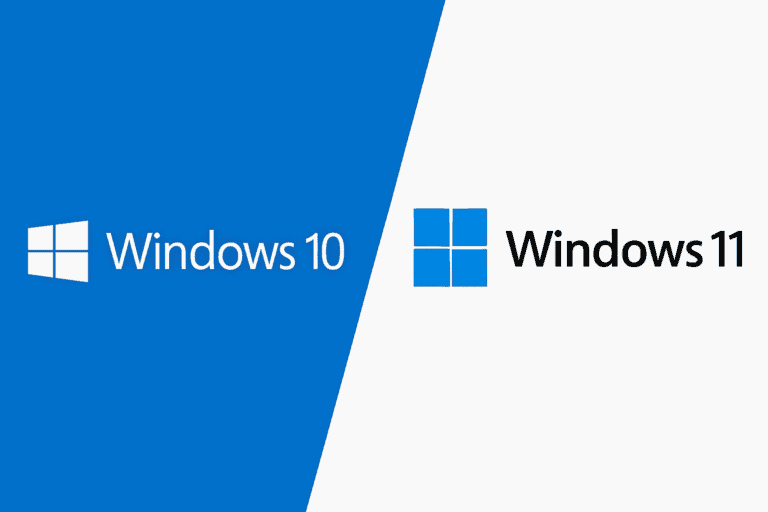Windows 10 is almost at the end of its life cycle. The popular operating system will no longer be supported (in most cases) from October 14, 2025. But what alternatives does Microsoft offer, and when will they expire? Read more below.
Windows 10 22H2 will reach its end-of-life on October 14, 2025. This date also marks the end of extended support for the 2015 LTSB variant (version 1507/RTM), which is finally being phased out after ten years. This long-term variant was primarily intended for edge applications that need to remain stable for as long as possible. However, ordinary users in particular will now be unsure about their next OS. The switch to Windows 11 is happening faster and faster, but the migration wave that is yet to come is huge.
For users still running older versions, the situation is already critical. Windows 10 21H2 reached its end-of-life on June 11, 2024, which means that these versions are already unsafe to use. Earlier versions have been past their expiration date for quite some time.
Extended Security Updates: an expensive alternative
Microsoft does offer Extended Security Updates (ESU) for organizations that need more time to transition to Windows 11. Consumers can get up to one year of additional support for $30, while organizations can purchase up to three years – albeit at increasingly higher prices.
According to indications, the Microsoft Volume Licensing Program costs $61 per device in the first year. In the second year, this rises to $122, and in the third year to no less than $244. For three years of ESU, you therefore pay $427 per PC – money that you could also invest in a timely upgrade.
Exceptions to the rule
Microsoft is making a conscious choice with Windows 10. Normally, Enterprise, Education, IoT Enterprise, and Enterprise multi-session versions of Windows receive a longer support period. However, this exception does not apply to Windows 10 22H2, which clearly shows that Microsoft wants to phase out the operating system for good. This is despite calls from several organizations to Microsoft to prevent the impending pile of e-waste. Many PCs are not officially supported by Windows 11 due to missing hardware functionality.
The only real exception is Windows 10 IoT Enterprise LTSC 2021, which will be supported until January 13, 2032. However, this version is not intended for regular client use and is a stripped-down version in which drivers sometimes do not work and software bugs are often not fixed.
Windows 11: the logical successor?
A switch to Windows 11 seems obvious, but here too, the clock is ticking. The first version of Windows 11 (21H2) has already reached end-of-life, and the current versions have the following support dates:
- Windows 11 22H2: until October 8, 2024
- Windows 11 23H2: until November 11, 2025
- Windows 11 24H2: until October 13, 2026
With Extended Security Updates, you can use Windows 11 until 2029 at the latest. For enterprise users, Windows 11 24H2 Enterprise offers support until October 12, 2027, while the IoT Enterprise LTSC 2024 variant will even receive security updates until October 10, 2034.
Faster upgrade cycle ahead
The support dates make one thing clear: if Windows 11 24H2 turns out to be the last major version of this operating system, the next transition to a new Windows system will have to take place much faster than we are used to. Users and organizations would be wise to factor these shorter cycles into their planning.
For the sake of clarity, these Windows releases are (still) supported (except for the only Windows 11 release that is no longer supported):
| Version | Type of support | Release date | EOL (mainstream) | ESU end date |
| Windows 10 2015 (1507 RTM) | LTSB | July 29, 2015 | End of servicing | October 14, 2025 |
| Windows 10 2016 (1607) | LTSB | August 2, 2016 | End of servicing | October 13, 2026 |
| Windows 10 2019 (1809) | LTSC | November 13, 2013 | End of servicing | January 9, 2029 |
| Windows 11 21H2 | G.A. | October 4, 2021 | End of servicing | End of servicing |
| Windows 10 2021 (21H2) | LTSC | November 16, 2021 | January 12, 2027 | January 13, 2032 |
| Windows 11 22H2 | G.A. | September 20, 2022 | October 8, 2024 | October 14, 2025 |
| Windows 10 22H2 | G.A. | October 18, 2022 | October 14, 2025 | October 14, 2025 |
| Windows 11 23H2 | G.A. | October 31, 2023 | November 11, 2025 | November 10, 2026 |
| Windows 11 24H2 | G.A. | October 1, 2024 | October 13, 2026 | October 12, 2027 |
| Windows 11 24H2 LTSC | LTSC | October 1, 2024 | October 9, 2029 | October 10, 2034 |
*IoT Enterprise only
